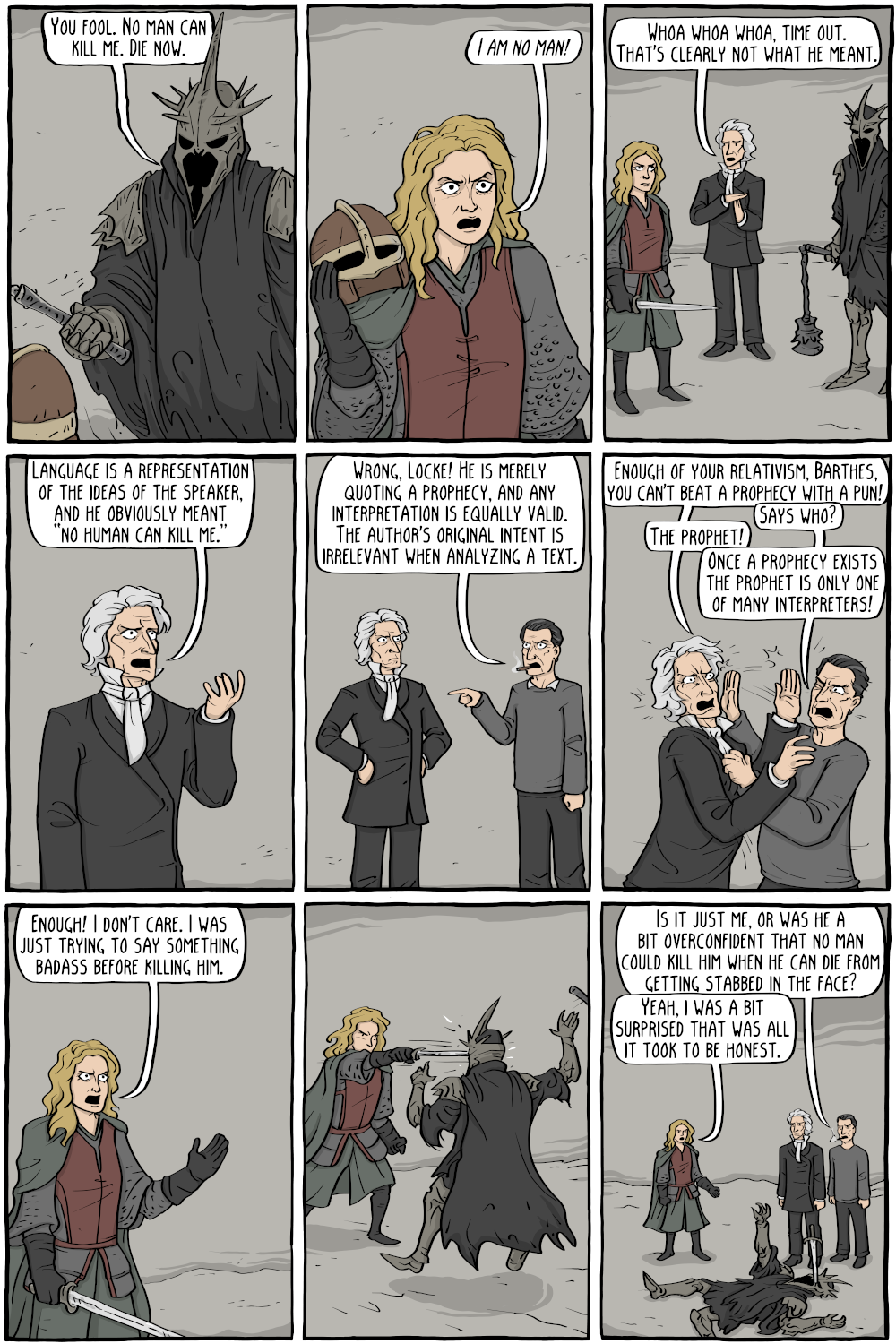
John Locke gave us one of the first modern theories of language, well before philosophy of language really took off. He more or less described language as a representation of the ideas of the speaker, rather than referring to external objects in the world. So if someone talks about a tree, the word "tree" doesn't strictly refer to a concrete object that exists, but only represents the idea of a tree in the mind of a person attempting to communicate. According to this view, mistakes in understanding language are mistakes in correctly interpreting the intent or ideas of the speaker.
Later theorists of language, like Roland Barthes, who is most famous for his ideas about the "death of the author", viewed language as a much more public enterprise. Once a given speech act occurs, or especially a given text, it is open to interpretation and re-interpretation by the public. The original intentions or ideas of the author aren't necessarily more valid than those of any other interpreter.
Permanent Link to this Comic: https://existentialcomics.com/comic/318
Support the comic on Patreon!










